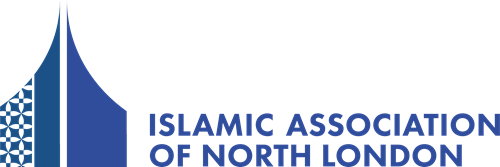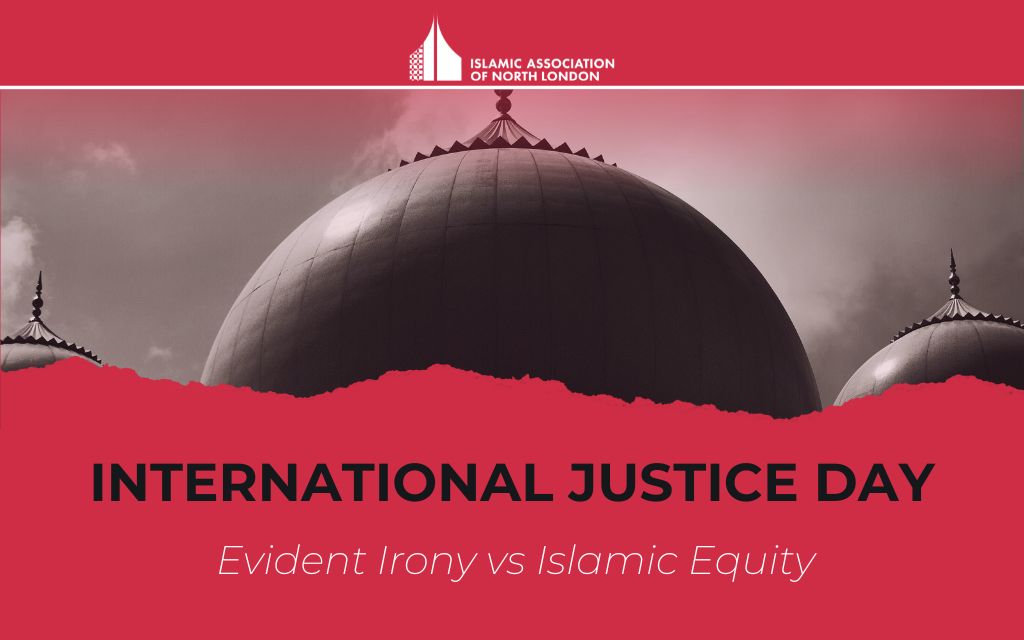By Aaliyah Shahnawaz
The 17th of July is known worldwide as Justice Day and celebrates “public international law”: a concept that encourages accountability for any state or government perpetrating serious atrocities. The crimes that typically fall under this law are genocide, war crimes, crimes against humanity, and the crime of aggression. In theory, it is a good way of uniting the public and accounting especially heinous, large-scale crimes. However, how well does it hold up in practice?
The Importance of Justice
Justice is necessary. This is quite obvious, as since the beginning of life on earth, humans have proved that we are flawed, and ultimately dependent on our creator, Allah (SWT), who is flawless. He is the only one worthy of defining and delivering true justice. Adam (AS) and Hawwa (AS) fell prey to Shaytaan’s whispers:
“…But Satan whispered to him… Adam disobeyed his Lord, and ˹so˺ lost his way.” (20:120-20:121),
Yet they were saved by the justice of Allah (SWT) as he forgave them and sent them to earth. They foretold the common experience of all humankind; we make mistakes and stray from the right path, then pray for forgiveness and either change or experience justice in this life or the next.
Without justice, the world would devolve into chaos, people would be demoralised, the people in power would crush the ones without and the list goes on. This much is commonly agreed on by Muslims and non-muslims alike, but at a time when secularism is on the rise and politics is not seen to coincide with religion- rather, it is widely accepted that religion is the antithesis of politics, what is the current state of a world that is trying to identify right and wrong and serve fairness, without any true common morals or ideologies except idolising the concept of “enjoying life to the fullest”?
The lack of societal, political, and economic justice
There is a transparent lack of justice and accountability in today’s society. Despite the great rise of power in the Western world, they have yet to achieve the egalitarian society they believe themselves to be. As a stark illustration of this illusory system of “international justice” they claim to have achieved and celebrate, these same Western states are apparently powerless in stopping genocide occurring in the very “states” they birthed by colonisation in their deep-rooted, bloody history of imperialism. They preach equality of all kinds amongst people of varied races, genders, and religious identities yet conceal their past of greedily dividing the land between each other and dictating how each culture should and should not be, silencing languages and diversity and cultural differences in the name of “liberation”.
Now countries that used to be self-sufficient in the past due to rich quantities of gold, spices, or oil, have become economically and ideologically dependent on the West to provide for them. And yet the civilians of these same states that lead the world in freedom and equality, who preach international justice, are struggling to survive in a capitalist system that does not value their health and living status. In the UK itself, prices of food and non-alcoholic beverages have reportedly risen by 7% just this year in January 2024. Around every 4 in 10 adults (41%) who pay energy bills said it was very or somewhat difficult to afford them. The statistics only get worse in places like the USA where there is no universal healthcare. Good, nutritious food is a luxury most working-class families simply cannot afford, and this is the standard of living for an average working-class citizen. Sadly there are now more Food Banks in the UK than there are outlets for that well known Burger chain with the golden arches..
This lack of justice in all areas causes problems; power stays fixed in the hands of a few and the concept of upholding and practicing law goes out the window. Its “smaller” impact is reflected in the lives of regular people, where highly advantaged, or highly disadvantaged, citizens believe that they can make or break the law as they see fit- as the ones supposedly upholding this justice and the law themselves do the very same. The bigger impact is that international law is not properly upheld, not in theory nor practice, and the oppressed will stay oppressed. But in the few cases that it is (upheld) it should only be so for the states in alliance with said aiding power, as long as they have economic, political, or even ideological influence over the oppressed in need of aid.
The justice of Islam: A brief but rich and consistent history
Islam upholds and delivers justice, and it’s possible to see exactly how in the history of our leaders and system. Firstly, the rules of war are a brilliant example of how justness and fairness are present in every rule of Islam, and every area of life.
“…And fight in the way of Allah with those who fight with you and do not exceed the limits.” (2:190)
This is interpreted to mean that you must fight those who wish to fight with you, meaning that civilians must not be targeted.
“Neither kill a child, nor a woman, nor an aged man. Bring no harm to the trees, nor burn them with fire…”.
These rules of war were dictated by Abu Bakr (RA) during warfare, and even the inanimate objects of nature are included in the mercy of warriors.
Furthermore, fairness and equity are needed in all areas of life- the system of zakāh reduces poverty and the prohibition of interest purifies wealth, the limitation of social interaction between unrelated men and women prevents indecency, uneducated behaviour is also prevented as Islam calls us to seek knowledge and be educated.
Islam as a whole seeks to serve justice in society, its morals and lofty ideals high above anything this world has to offer us, understandably so as it is a holistic way of life dictated by the One who made us and knows best.
The future of justice
As Muslim civilians, we must enjoin the right and forbid the wrong, whether we are a parent, a teacher, a friend, or a civilian. As Prophet Muhammad (SAW) stated,
“Whosoever of you sees an evil, let him change it with his hand; and if he is not able to do so, then [let him change it] with his tongue; and if he is not able to do so, then with his heart — and that is the weakest of faith.” [Muslim]
What can we do?
How can we as Muslim citizens work to build a righteous, honourable system? We should pray to Allah (SWT), and call for real justice; justice that holds those in the wrong accountable regardless of how much power and wealth they own, justice that refuses to accept the situation we are facing with our brothers and sisters in Palestine, and justice that serves rewards and punishment as it is due. Reflect on your communities, social circles, and environments- how could they be improved? How could you bring more awareness to injustice in your hometown or another city?
Most importantly, how can you unite the people around you to achieve even greater objectives than you could achieve by yourself? Islamically, Muslims are one body who are united, “allies” of each other and we can not fight injustice alone. We must unite and strive along the path of improvement together, with one goal in mind- to set right the wrongs, in a way that pleases our Creator and changes the world for the better.
“The believing men and believing women are allies of one another. They enjoin what is right and forbid what is wrong and establish prayer and give zakāh and obey Allāh and His Messenger.” (9:71)


